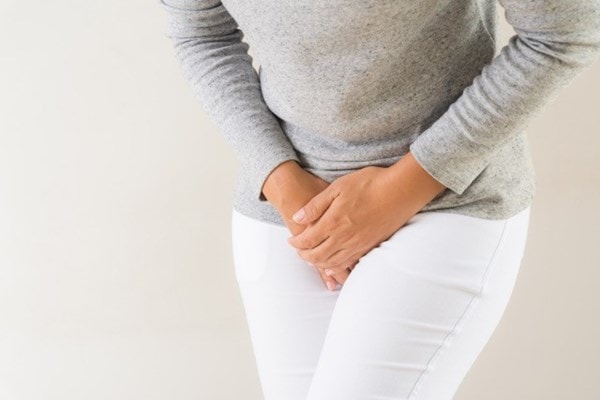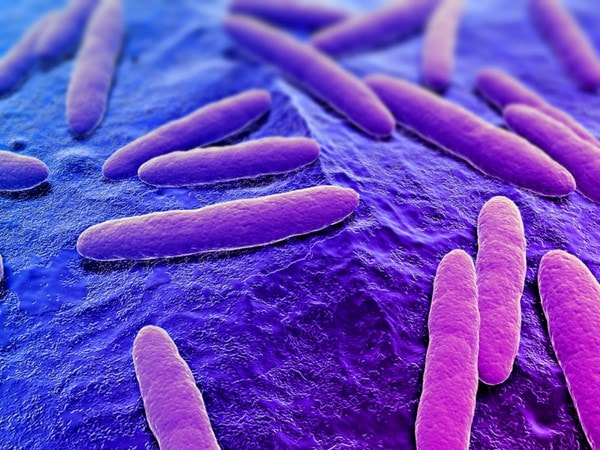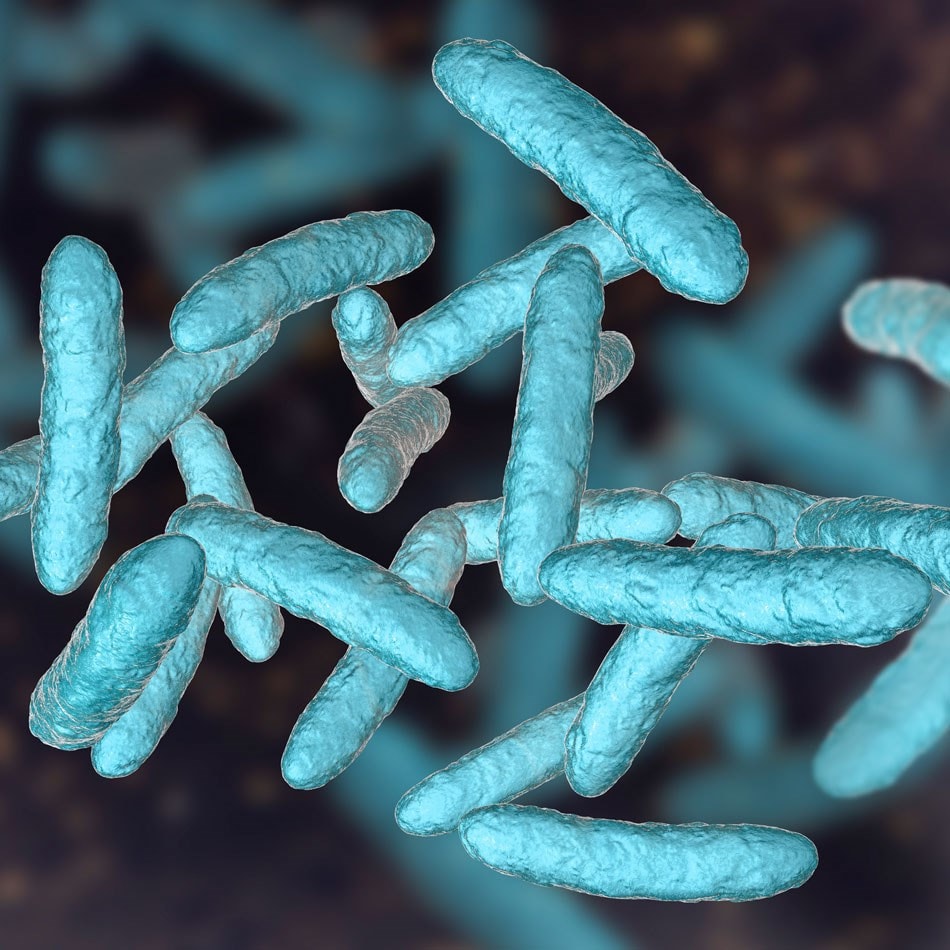Probiotics for UTI - A Microbiologist Reviews the Research
A urinary tract infection (UTI) is a type of bacterial infection that occurs anywhere in the urinary system, including the bladder, urethra, ureters, and kidneys. Although the urinary tract is designed to keep out harmful bacteria these defences sometimes fail, allowing microscopic invaders to take hold, which can grow into a UTI infection. In this article we explore the research supporting the use of probiotics for UTI prevention:
- Urinary Tract Infections: Statistics
- Symptoms of UTI
- What causes a UTI?
- What is the urinary microbiome?
- What factors affect the urinary microbiome?
- Are probiotics good for UTI infections?
- Which are the best probiotics for cystitis?
- Which is the best probiotic for UTI?
- How can I avoid a UTI?

Urinary Tract Infections: the Statistics
We are seeing the incidence rates of UTIs increase annually. A global study in 2013 found over 92 million people suffered with UTIs worldwide1. Furthermore, the study found a 16% rise in UTI numbers from 1990 to 2013. In the UK, UTIs in the primary care system have increased 102% from 2001 to 20112, and in 2011, the Health Protection Agency estimated 14% of all antibiotics prescribed were for UTIs. This costs the NHS at least £124 million a year3, 4. More recent research in 2019 reported over 404 million individuals worldwide were affected by UTIs, with nearly 237,000 associated deaths31.
Symptoms of UTI
Anyone can suffer with a UTI, from babies to the elderly. The risk increases as you get older and women are at higher risk than men. Sometimes genetics play a role in susceptibility. It is estimated that 50-60% of women will develop at least one UTI in their lifetime5. It is less common for children and babies to get UTIs, but children with symptoms should always be diagnosed by a GP.
Symptoms can include:
- Urinating more frequently
- Pain or burning feeling when urinating
- Changes to urine – smell, cloudiness or presence of blood
- Pain in lower abdominal area
- Fatigue/low energy and a high temperature
UTI symptoms can be uncomfortable and, in some cases, distressing, particularly if infections are recurrent or left untreated. While some mild UTIs may resolve on their own, many require treatment to prevent complications. Severe or untreated infections can lead to more serious health issues, including kidney infections. According to the NHS, individuals should seek medical attention if symptoms persist for more than a few days, as antibiotics may be necessary to clear the infection.
What causes a UTI?
The World Health Organisation states that UTIs may occur either because of the virulence of the pathogen causing the disease, the susceptibility of the host or a combination of both factors.
UTIs are caused by pathogenic (harmful) bacteria that enter the urinary tract area. The following pathogens may be implicated in urinary tract infections5,6:
- Escherichia coli (most common)
- Proteus mirabilis
- Staphylococcus saprophyticus
- Enterococcus faecalis
- Group B Streptococcus
- Pseudomonas aeruginosa
- Klebsiella spp.
In terms of how they cause infection: the most commonly accepted theory is that pathogens are able to travel from the gut to the uro-genital tract. They translocate across the perineum, and ascend to the bladder via the urethra. Here they can also cause cystitis. Emerging research has shown links between the urinary microbiome and microbiota of orther organs, including the gut25.
People are often confused about the difference between a UTI and cystitis – essentially, cystitis is a specific type of UTI that affects the bladder. Read on to learn more about probiotics for cystitis.

Some pathogens are able to further migrate and travel to the kidneys via the ureters. This is why women are more at risks of UTIs, as their urethra is much shorter and closer to the anus. Interestingly, it has been shown that daughters of women who have recurrent UTIs are at a higher risk of UTIs7.
To be successful, pathogens must display specific virulence factors in order to cause disease. They often require flagella (tail-like structures) to help them move from the genital region across to the urethra and bladder. Once there, they must be able to adhere well to the bladder lining, meaning they require specific attachment molecules (pili).
They must also be able to tolerate an immune response from the body, and one of the ways they can do this is through biofilm formation6. A biofilm is a protective layer (made from a mix of proteins and polysaccharides) that bacteria can produce around themselves. It makes an antibiotic’s job very difficult, as it is hard to penetrate and target the bacteria hidden inside. Once protected by the biofilm, pathogens can then produce toxins which can result in inflammation and tissue damage.
The ability to cause disease will depend on the virulence factors mentioned above, but some pathogens may be thwarted before causing disease if the environment they are entering – in this case, the urinary microbiome – is well-protected.
What is the urinary microbiome?
Scientists believed for many years that the urinary tract was sterile, until very recently. Thanks to advanced technologies in metagenomics, research has shown that certain microbes do exist in the urinary tract, albeit at low numbers. The most common genera present are8-10:
- Lactobacillus (the most dominant genus)
- Gardnerella
- Cornyebacterium
- Streptococcus
- Actinomyces
- Staphylococcus
This combination of microorganisms differs to the microbiomes found in the gut, mouth and skin. Like most of these human microbiomes, the urinary microbiome is unique to each individual.
Despite this, there are some similarities between the urinary and vaginal microbiome. Both regions are dominant in lactobacilli and some of the genera present are similar. However, it is not clear how these microbiomes interact with one another. Visit the Probiotics Learning Lab to find out more about the microbiomes in the body.
Generally, no definitive healthy urinary microbiome has been defined, however some suggestions have been posited. A study in 2013 looked at how the urinary microbiome can differ between individuals of different age and genders11. The researchers proposed that actually a ‘core’ microbiome can be observed, but may differ slightly depending on age. A core profile was seen across all women, but additional types of bacteria were seen within the different age groups (20-49, 50-69 and 70 years+), especially in the eldest age group.
Furthermore, the average total number of bacteria decreased as age increased, for both women and men. They also found that women have a different urinary microbiome to men, with women displaying a wider diversity of microbes. Similar results have also been shown in additional studies12-14. Although these results are interesting, it should be noted that the sample size used for this initial study was small, and more research is needed to ascertain differences in urinary microbiome composition.
What factors affect the urinary microbiome?
As mentioned above, a number of different things can influence our urinary microbiomes. These include:
- Gender
- Age
- Dehydration14
- Antibiotics14, 15
- Urinary incontinence16
- Sexual activity17
- Blood sugar levels & diabetes18
- Vaginal health19

There could also be many more factors but research is still in its early days. It is likely that factors which affect vaginal health could also influence urinary health (hormones, perfumed products, tight clothing, douching etc.). This is supported by a study in 2009, in which the researchers showed that women with bacterial vaginosis (BV) had an increased risk of developing a UTI19. This could also explain why menopausal women are at a higher risk of UTIs. As oestrogen levels drop, numbers of lactobacilli in the vaginal tract drop too, thus increasing the likelihood of BV.
Antibiotics impact the urinary microbiome because they damage commensal ('good' or benign) organisms in the gut and vaginal tract. They are not very selective, and often kill or inhibit good bacteria as well as the pathogens they are targeting. This can cause bacterial imbalances (dysbiosis), where harmful bacteria flourish, causing the individual to be more vulnerable to infection25. Taking probiotics with antibiotics can help to protect the gut microbiome from the action of the antibiotics. Visit the Probiotics Learning Lab to find out more about dysbiosis and taking probiotics with antibiotics.
Are probiotics good for UTI infections?
Approximately 20-30% of women will suffer with recurring UTIs throughout their lives20. As mentioned above, antibiotics are usually given to treat urinary tract infections, but due to the increasing global issue of antibiotic resistance and lack of other viable treatment options, other solutions are being sought. Probiotics may offer a natural option to support the urinary microbiome, potentially reducing the need for antibiotics or helping to enhance their effect when used.
So how can probiotics help UTIs? In fact, in both the gut and vaginal tract, the resident microbiomes can support the host in many ways, from immune support to positively affecting mood. Visit the Probiotics Learning Lab to find out more about the gut-brain axis.
In the gut, the microbiome and immune system are in constant communication. There are some immune cells located in the urinary tract, but there has been little research documenting this relationship. But for the support of UTIs, a particular benefit is the ability of probiotic bacteria to maintain balance between commensal and pathogenic microorganisms. As the urethra opens to the external outside environment, the urinary tract is potentially more exposed and vulnerable. Good bacteria in the urinary microbiome may be able to offer protective benefits by discouraging the growth of pathogenic microbes in this area and therefore protecting against infection.
This is also thought to be the case in the urinary tract. Commensal organisms can adhere to and line the epithelial cells in the urinary tract. This forms a protective barrier, obstructing pathogenic organisms from binding, and reducing the risk of biofilm formation. Commensals might also be able to compete with pathogens for nutrients as well as produce anti-microbial substances such as lactic acid and bacteriocins. This may reduce the overall risk of infection by pathogens.
All of this considered, if probiotics can be used as an intervention in the gut and vaginal microbiomes, then could they be used in the urinary microbiome for UTIs, too?
Which are the best probiotics for cystitis?
Cystitis refers to inflammation of the bladder, usually caused by infection, whereas a UTI is an infection of any part of the urinary tract including the bladder (cystitis), ureters or urethra. It mostly occurs in sexually active women; for some it is rare and for others it can happen several times a year.
Symptoms include a frequent sensation of needing to pass urine even when little or no urine is present, blood in the urine, painful urination, backache, lower abdominal pain, and nausea. Women can help prevent cystitis by drinking plenty of water, taking cranberry supplements or sugar-free juice, wiping correctly after going to the toilet, and always urinating as soon as possible after sexual intercourse. Some women find that using condoms can help avoid infection. Short-term antibiotics are often prescribed for serious bouts of cystitis.
Much evidence suggests that maintaining a healthy balance of beneficial microflora in the intestinal & vaginal passages can reduce the risk of UTIs (Urinary Tract Infections)1. UTIs like cystitis are caused by pathogenic bacteria such as E. coli. Treatments for UTIs are limited and many women who suffer with urinary tract issues seek other measures to support their intimate health. Ensuring a good level of probiotics in the gut can diminish the ability of pathogenic bacteria to bind, multiply and colonise, therefore leading to less chance of developing cystitis. This is partly why high volumes of water intake is recommended as both a prevention and a remedy for cystitis; because water flushes pathogens out of the system.
Clinical trials have shown that a number of strains of Lactobacillus are particularly effective at helping to support vaginal health in those with female intimate health problems such as cystitis. A study2 showed that taking a probiotic containing various strains of Lactobacillus, amongst other interventions including cranberry tablets, resulted in significant health improvements and symptom relief.
These specific strains (in particular Lactobacillus rhamnosus GR-1® and Lactobacillus reuteri RC-14®) have been clinically trialled to survive transit through the gut, and then successfully colonise the vagina and bladder where they exert their beneficial effects3. In a large clinical trial4 involving 252 post-menopausal women, it was found that after a period of twelve months, the occurrence of UTIs was reduced by 50% in the women who were given a combination of the above two strains. This was equally as effective as antibiotic treatment, but in those who were treated with antibiotics there was also a 90% rate of antibiotic resistance. This demonstrates that probiotics could perform to the same standard as antibiotics, without the risk of pathogens developing resistance.
Which are the best probiotics for UTI?
Now a role for probiotics has been established, which probiotic strains are best for urinary tract infections? The studies investigating probiotics and UTIs are mixed – some have shown very promising and exciting effects, whilst others have reported little. Although gut health is always an important consideration, as pathogens causing issues in the genito-urinary area may well translocate from the gut, the strains with most to offer in terms of support for UTIs are those which colonise in the vagina. Two of the most highly researched for the support of intimate health are Lactobacillus rhamnosus GR-1® and Lactobacillus reuteri RC-14®.
Read more about the research using these strains in the Probiotics Database: Lactobacillus rhamnosus GR-1® and Lactobacillus reuteri RC-14®
Other strains researched for genito-urinary health are L. reuteri B-54 and L. crispatus.
Here's an overview of some of the most significant studies featuring these probiotics:
- In one large, double-blind, randomised trial published in 2008, this probiotic combination was shown to reduce the number of UTIs per year21. The one-year study included 252 postmenopausal women with a history of recurrent UTIs. The women were split into two groups, and were either given a probiotic combination of Lactobacillus rhamnosus GR-1® and Lactobacillus reuteri RC-14®, or an antibiotic (trimethoprim-sulfamethoxazole) to take daily over the year. Results showed the number of UTIs had halved in both groups, with probiotics being nearly as effective as antibiotics. In the antibiotic group, UTIs had dropped from 7 to 2.9 UTIs per year, and in the probiotic group, UTIs had dropped from 6.8 to 3.3 UTIs per year. Additionally, antibiotic resistance had increased in the antibiotic group from starting values of 20-40% up to 80-95%. No resistance was observed in the probiotic group.
- Another trial looking at these specific strains (L. rhamnosus GR-1® and L. reuteri RC-14®) was conducted in premenopausal women22. This study found a reduction in recurring UTIs from 47% to 21% during a 6-month period. A similar study investigating L. rhamnosus GR-1® and L. reuteri B-54 were also able to significantly reduce the number of recurring UTIs in premenopausal women from 6 to 1.6 UTIs per year23. Find out more about probiotics and menopause symptoms.
- A different double-blind study featured 100 premenopausal women who had all suffered with at least one UTI in the preceding year24. The women were randomised and given either a probiotic (Lactobacillus crispatus) or placebo following antibiotic treatment for a UTI. In the probiotic group, a recurrent UTI occurred in 15% of the women compared to 27% in the placebo group. Furthermore, the vaginal tract showed higher levels of colonisation with the probiotic.
- A 2022 literature review agrees with these research studies, finding Lactobacillus rhamnosus GR-1® and Lactobacillus reuteri RC-14® to be promising for UTI's32.
Results - a microbiologist's review:
The positive results observed in the above trials could be due to various factors. An important point is that these probiotic strains were initially isolated in the urogenital tract. As such, they exhibit high adherence capabilities and are able to support the probiotic barrier effect. They’ve also been shown to exhibit high anti-microbial activity against E. coli and produce the antimicrobials required to inhibit pathogens and breakdown pathogen biofilms.It is therefore essential to select probiotics that have been well-researched to reach the intimate area and have good adherence qualities.
A study in 2014 showed the urinary microbiome may also be linked to urge urinary incontinence (UUI)16. This study also found that a commensal organism, L. crispatus, is associated with a lack of symptoms for UUI. The exact mode of action is unknown, but it was suggested that this protective influence could come from the barrier effect of the species. There could also be a connection between the urinary microbiome and brain, like the gut-brain axis, this may also affect UUI. L. crispatus has also been shown to have high anti-microbial activity against E.coli and Candida albicans18.
When recommending probiotics for UTIs, choose strains which have been researched for the support of genito-urinary health, such as those detailed above.
How can I avoid a UTI?
There are a number of things that women in particular can do to look after urinary health and limit the instances of UTIs, including:
- Remain properly hydrated
- Support vaginal health
- Take a probiotic especially for UTIs and intimate health, containing highly researched strains such as Lactobacillus rhamnosus GR-1®
- Pass urine after sex to wash away pathogens
- Eat a balanced diet, high in fibre
- Support your general gut health
Visit the Probiotics Learning Lab for all you need to know about supporting gut health and the vaginal flora.
For further reading, you may be interested in the following articles:
New research: Probiotics vs antibiotic resistance
Could probiotics help with sexual health?
Kidney infections – could probiotics help?
Visit the Probiotics Learning Lab to read other related articles:
Probiotics and Bacterial Vaginosis
The 10 Best Probiotics for Women, a Nutritionist's Top Picks
References
- Global Burden of Disease Study 2013 Collaborators. Global, regional, and national incidence, prevalence, and years lived with disability for 301 acute and chronic diseases and injuries in 188 countries, 1990-2013: a systematic analysis for the Global Burden of Disease Study 2013. Lancet. 2015 Aug 22;386(9995):743-800. doi: 10.1016/S0140-6736(15)60692-4.
- Bardsley et al., (2013). Is secondary preventive care improving? Observational study of 10-year trends in emergency admissions for conditions amenable to ambulatory care. BMJ. 3(1). Online
- Health Protection Agency. English National Point Prevalence Survey on Healthcare-associated Infections and Antimicrobial Use, 2011: Preliminary data. Published 2012. Accessed Jan 20, 2016.
- Plowman R et al. (2001). An economic model to assess the cost and benefits of the routine use of silver alloy coated urinary catheters to reduce the risk of urinary tract infections in catheterized patients. Journal of Hosp Infection. 48: 33-42.
- Al-Badr et al., (2013). Recurrent Urinary Tract Infections Management in women: A review. Sultan Qaboos Univ Med J. 13 (3): 359-367
- Flores-Mireles et al., (2015). Urinary tract infections: epidemiology, mechanisms of infection and treatment options. Nat Rev Microbiol. 13(5): 269-284
- Ragnarsdottir B et al., (2011). Genetics of innate immunity and UTI susceptibility. Nat. Rev. Urol. 8: 449-468
- Bersanelli M et al., (2019). The Urinary Microbiome and anticancer immunotherapy: The potentially hidden role of unculturable microbes. Targeted Oncology. 14 (3): 247-252
- Mueller ER et al., (2018). The Female Urinary Microbiota. Curr Opin Urol. 27 (3): 282-286
- Hilt E,E et al., (2014). Urine is not sterile: use of enhanced urine culture techniques to detect resident bacterial flora in the adult female bladder. Journal of Clinical Microbiology. 52 (3): 871-6
- Lewis D., (2013). The human urinary microbiome; bacterial DNA in voided urine of asymptomatic adults. Cell. Infect. Microbio. 3: 41
- Siddiqui H et al., (2011). Assessing diversity of the female urine microbiota by high throughput sequencing of 16S rDNA amplicons. BMC Microbiol. 2 (11): 244
- Dong Q et al., (2011). The microbial communities in male first catch urine are highly similar to those in paired urethral swab specimens. PLoS One. 6 (5): e19709
- Whiteside S,A., (2015). The microbiome of the urinary tract- a role beyond infection. Nature Reviews Urology. 12 (2): 81-90
- Goneau L. W., et al. (2014). Selective target inactivation rather than global metabolic dormancy causes antibiotic tolerance in uropathogens. Antimicrob. Agents Chemother. 58, 2089–2097
- Pearce M, M., (2014). The female urinary microbiome: a comparison of women with and without urgency urinary incontinence. MBio. 5 (4): e01283-14
- Kim J & Park Y., (2018). Lactobacillus and Urine Microbiome in Association with Urinary Tract Infections and Bacterial Vaginosis. Urogenit Tract Infect. 13 (1): 7-13
- Liu F et al., (2017). Alterations of urinary microbiota in type 2 diabetes mellitus with hypertension and/or hyperlipidemia. Front Physiol. 8:126.
- Sumati AH & Saritha NK., (2009). Association of urinary tract infection in women with bacterial vaginosis. J Glob Infect Dis. 1: 151–152
- Beerepoot M & Geerlings S., (2016). Non-Antibiotic Prophylaxis for Urinary Tract Infections. Pathogens. 5 (2): 36
- Beerepoot et al., (2012). ‘Lactobacilli vs antibiotics to prevent urinary tract infections: a randomized, double-blind, noninferiority trial in postmenopausal women’. Arch. Intern. Med. 172 (9): 704-12.
- Reid et al., (1992). Influence of three day antimicrobial therapy and lactobacillus vaginal supposirtoies on recurrence of urinary tract infections. Clin Ther. 14 (1): 128-131
- Red et al., (1995). Instillation of Lactobacillus and stimulation of indigenous organisms to prevent recurrence of urinary tract infections. Microecol Ther. 23: 32-45
- Stapleton E, A., (2011). Randomised, placebo- controlled phase 2 trial of a Lactobacillus crispatus probiotic given intragainally for prevention of recurrent urinary tract infection. Clin Infect Dis. 52 (10): 1212-7
- Worby, C.J., Schreiber, H.L., Straub, T.J. et al. Longitudinal multi-omics analyses link gut microbiome dysbiosis with recurrent urinary tract infections in women. Nat Microbiol 7, 630–639 (2022). https://doi.org/10.1038/s41564-022-01107-x
- Hae Woong Choi, Kwang Woo Lee, Young Ho Kim (2023) Microbiome in urological diseases: Axis crosstalk and bladder disorders, Investigative and Clinical Urology. 64(2):126-139
- Borchert, D. et al., (2008). 'Prevention and treatment of urinary tract infection with probiotics: Review and research perspective'. Indian Journal of Urology 24(2) 139-1442.
- Mansour, A. et al., (2014). 'Efficient and Cost-Effective Alternative Treatment for Recurrent Urinary Tract Infections and Interstitial Cystitis in Women: A Two-Case Report'. Case Rep Med 6987583.
- Reid, G. et al., (2001). 'Probiotic Lactobacillus dose required to restore and maintain a normal vaginal flora.' FEMS Immunol Med Microbiol, 32(1): 37-41
- Beerepoot et al., (2012) 'Lactobacilli vs antibiotics to prevent urinary tract infections: a randomized, double-blind, noninferiority trial in postmenopausal women.' Arch Intern Med 172(9) 704-12
- Zeng, Z et al., (2022). Global, regional, and national burden of urinary tract infections from 1990 to 2019: an analysis of the global burden of disease study 2019. World journal of urology, 40(3), 755–763. https://doi.org/10.1007/s00345-021-03913-0
- New, F.J. et al., (2022) Role of Probiotics for Recurrent UTIs in the Twenty-First Century: a Systematic Review of Literature. Curr Urol Rep 23, 19–28 (2022). https://doi.org/10.1007/s11934-022-01085-x
Popular Articles
View all Female Health articles-
Female Health18 Sep 2024


